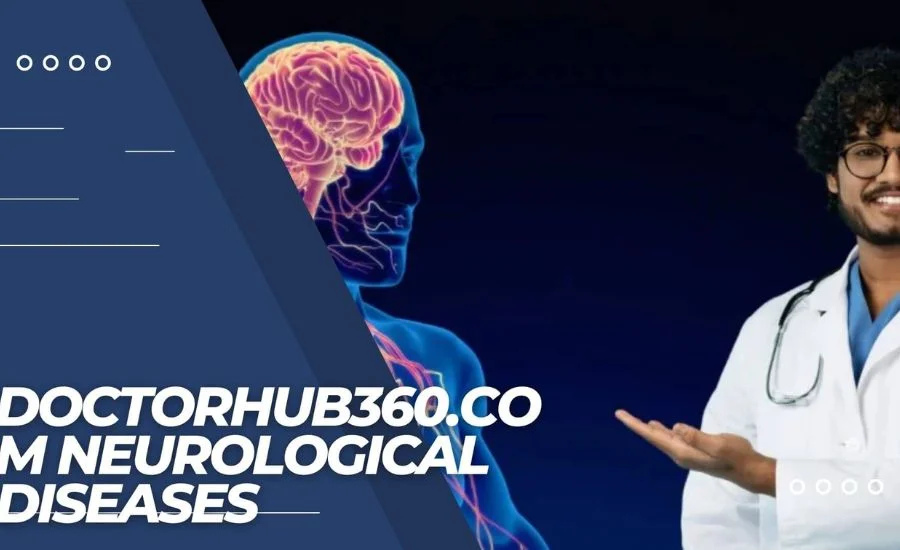Neurological diseases affect millions of individuals worldwide, ranging from mild conditions to severe, life-altering disorders. At DoctorHub360.com neurological diseases, we provide a trusted resource for understanding, managing, and navigating these complex health challenges. This article explores neurological diseases, their causes, symptoms, treatment options, and prevention strategies, offering valuable insights for both patients and caregivers.
What Are Neurological Diseases?
Neurological diseases refer to disorders that affect the brain, spinal cord, and nerves. These conditions can impact movement, sensation, cognition, and other bodily functions.
Common Types of Neurological Diseases
- Alzheimer’s Disease: A progressive disorder causing memory loss and cognitive decline.
- Parkinson’s Disease: A condition that affects movement, leading to tremors and stiffness.
- Multiple Sclerosis (MS): An autoimmune disease targeting the central nervous system.
- Epilepsy: Characterized by recurrent seizures due to abnormal brain activity.
- Stroke: A sudden interruption of blood supply to the brain.
- Migraines: Severe, recurring headaches often accompanied by nausea and sensitivity to light.
Symptoms of Neurological Diseases
Symptoms vary depending on the specific condition but may include:
- Chronic headaches
- Numbness or tingling in extremities
- Memory loss
- Loss of balance or coordination
- Speech difficulties
- Seizures
- Vision problems
Early Warning Signs
- Persistent weakness in limbs
- Unexplained mood changes
- Difficulty concentrating or confusion
- Frequent falls or clumsiness
Causes and Risk Factors
Neurological diseases can result from various causes:
| Cause | Examples |
|---|---|
| Genetic Factors | Huntington’s disease, muscular dystrophy |
| Infections | Meningitis, encephalitis |
| Lifestyle Factors | Smoking, poor diet, lack of exercise |
| Trauma or Injury | Spinal cord injuries, traumatic brain injuries |
| Autoimmune Disorders | Multiple sclerosis, Guillain-Barré syndrome |
| Age-Related Degeneration | Alzheimer’s disease, Parkinson’s disease |
Diagnosis of Neurological Diseases
Timely diagnosis is critical for effective management. Common diagnostic tools include:
- Neurological Exams: Assess reflexes, muscle strength, and coordination.
- Imaging Tests: MRI, CT scans to visualize brain and nerve structures.
- Electroencephalograms (EEG): Detect abnormal brain activity.
- Blood Tests: Identify infections or autoimmune markers.
- Spinal Taps: Check cerebrospinal fluid for infections or inflammation.
Treatment Options
Treatment depends on the specific condition but may involve:
Medications
- Anticonvulsants for epilepsy
- Dopaminergic drugs for Parkinson’s
- Immunomodulators for multiple sclerosis
Therapies
- Physical Therapy: Improve mobility and strength.
- Speech Therapy: Aid communication and swallowing.
- Occupational Therapy: Enhance daily living skills.
Surgical Options
- Deep Brain Stimulation (DBS): Used for Parkinson’s and epilepsy.
- Clot Removal or Stenting: For stroke patients.
Prevention Strategies
While not all neurological diseases can be prevented, the following measures can reduce risk:
- Maintain a healthy diet rich in omega-3 fatty acids and antioxidants.
- Exercise regularly to boost brain and nerve health.
- Avoid smoking and excessive alcohol consumption.
- Manage chronic conditions like diabetes and hypertension.
- Wear protective gear to prevent head injuries.
- Stay mentally active through puzzles, reading, and learning new skills.
Also Read: Revolutionizing Health and Fitness with Iofbodies.com Applications
Living With Neurological Diseases
Managing a neurological condition involves a combination of medical care, lifestyle adjustments, and emotional support.
Tips for Coping
- Follow a consistent treatment plan.
- Join support groups for shared experiences and advice.
- Stay informed about the latest advancements through DoctorHub360.com.
- Communicate openly with healthcare providers and caregivers.
How DoctorHub360.com Can Help
DoctorHub360.com is a comprehensive platform offering:
- Educational Resources: Articles, videos, and guides on neurological diseases.
- Expert Advice: Insights from medical professionals.
- Community Support: Forums for patients and caregivers.
- Tools and Trackers: For monitoring symptoms and medication adherence.
Frequently Asked Questions
1. Can neurological diseases be cured?
While some conditions can be treated or managed effectively, many chronic neurological diseases lack a definitive cure.
2. Are neurological diseases hereditary?
Some, like Huntington’s disease, are hereditary, while others result from environmental or lifestyle factors.
3. How can I support a loved one with a neurological condition?
Provide emotional support, assist with daily tasks, and encourage adherence to their treatment plan.
Conclusion
Neurological diseases present unique challenges, but understanding their causes, symptoms, and treatments can empower patients and caregivers. DoctorHub360.com neurological diseases is dedicated to providing reliable information and support, helping you navigate the complexities of these conditions with confidence. Visit our platform today for more insights and resources.










